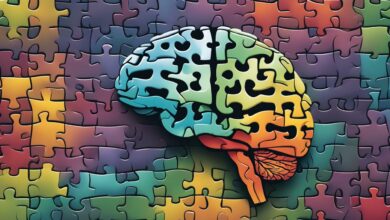Stress Management: Your Path to Better Health

Welcome to our article on stress management and its critical role in achieving better overall health. All of us experience stress in our lives, whether it’s due to work, relationships, finances, or health. However, prolonged and chronic stress can lead to severe physical and mental health issues, such as anxiety, depression, cardiovascular disease, weakened immune system, and digestive disorders.
In this article, we will explore the importance of stress management in promoting better health. We’ll also provide practical strategies for effectively managing stress on a daily basis, and highlight the benefits of a healthy lifestyle. Join us on this journey to unlock a path to better health through stress management!
Key Takeaways
- Stress can have significant negative effects on both physical and mental health.
- Effective stress management is essential for maintaining optimal health.
- Practical strategies such as mindfulness, exercise, and self-care are crucial for managing stress successfully.
- Creating a stress-free environment at home and establishing boundaries can help reduce overall stress levels.
- Professional help, such as therapy or counseling, may be necessary to address underlying stress-related issues.
Understanding the Effects of Stress on Physical and Mental Health
Stress can wreak havoc on our bodies and minds, impacting our physical and mental health in numerous ways. The effects of stress on physical health are well-documented, with chronic stress being linked to numerous conditions, including cardiovascular disease, weakened immune system, and digestive disorders.
When it comes to mental health, stress can be equally detrimental. It is associated with anxiety disorders, depression, and other mood disorders. Prolonged stress can also cause changes in brain chemistry and structure, leading to cognitive impairments and memory problems.
It’s important to note that stress affects individuals differently, with some people more susceptible to the negative effects than others. Identifying the signs and symptoms of stress is crucial in addressing potential health problems and implementing effective stress management strategies.
Strategies for Effective Stress Management
Managing stress effectively is crucial for achieving optimal health. We understand that stress can negatively impact our physical and mental well-being, but there are several strategies we can implement to cope with stress and promote a more balanced lifestyle.
1. Mindfulness and Relaxation Techniques
Practicing mindfulness and relaxation techniques can help reduce stress and anxiety levels. Techniques such as deep breathing, meditation, and yoga have been shown to be effective in promoting relaxation and reducing stress responses.
Try incorporating 10-15 minutes of deep breathing or meditation into your daily routine. You can also attend a yoga class or use a guided relaxation app to help you unwind and manage stress effectively.
2. Setting Boundaries and Time Management
Setting boundaries and managing time effectively can help reduce stress levels associated with feeling overwhelmed or overworked. Prioritize your tasks and delegate when necessary. Learn to say “no” when requests or commitments become too much to handle.
Additionally, take breaks throughout the day to recharge and avoid burnout. Go for a walk, read a book, or engage in a hobby that you enjoy to reset your mind and manage stress effectively.
3. Exercise
Regular physical activity is an effective way to reduce stress levels and improve overall well-being. Exercise releases endorphins, which are natural mood boosters that can help reduce stress and anxiety.
Try to incorporate at least 30 minutes of moderate exercise into your daily routine. Go for a walk or run outside, attend a fitness class, or practice yoga to reap the stress-reducing benefits of physical activity.
4. Nutrition
Eating a well-balanced diet can help reduce stress levels and promote better overall health. Avoid processed foods and sugary snacks, which can lead to spikes and crashes in blood sugar and contribute to stress and anxiety.
Instead, focus on consuming whole foods that are high in nutrients, such as fruits, vegetables, lean proteins, and whole grains. These foods can help regulate blood sugar levels and promote a healthier stress response.
5. Self-Care
Self-care activities are essential for managing stress effectively. Engage in activities that you enjoy and that promote relaxation and well-being. Schedule time for yourself each day, even if it’s just 15-20 minutes, to engage in self-care activities.
This can include taking a warm bath, reading a book, getting a massage, or practicing a hobby you enjoy. Prioritizing self-care can help you better manage stress levels and promote better overall health.
Remember, stress management is a journey that requires consistent effort and dedication. Incorporating these strategies into your daily routine can help you effectively manage stress and promote better overall health.
The Role of Exercise in Reducing Stress
Physical activity is a powerful tool in stress management. Engaging in regular exercise can have a significant impact on reducing stress levels and promoting overall well-being.
Research has shown that exercise can help reduce the levels of stress hormones, such as cortisol, in the body. Additionally, exercise can increase the production of endorphins, chemicals that stimulate a feeling of happiness and euphoria.
When it comes to choosing the right kind of exercise to reduce stress, it’s important to find activities that you enjoy. Some people find relief in high-intensity workouts, while others prefer more gentle forms of movement, such as yoga or walking.
Incorporating exercise into your daily routine can also help create structure and provide a sense of accomplishment. This can be especially helpful in managing work-related stress.
It’s important to note that exercise should not be used as a replacement for seeking professional help if necessary. If you are experiencing chronic stress or underlying mental health issues, it’s essential to consult with a healthcare professional.
Overall, incorporating regular exercise into your stress management routine can have a powerful impact on your overall well-being. Whether you prefer high-intensity workouts or gentle movement, finding the right form of exercise for you can be a game-changer in reducing stress levels and promoting optimal health.
Nutrition and Stress: The Connection Explained
What we eat can impact our stress levels. The food we consume can either exacerbate or alleviate stress. Studies have shown that certain foods can help keep stress at bay, while others can make it worse.
Let’s start with the bad news – consuming too much sugar, caffeine, and processed foods can raise our stress levels. These foods provide a quick energy boost, but it’s often followed by a crash, leaving us feeling more tired and stressed. Additionally, excessive consumption of these foods can lead to inflammation in the body, which is linked to chronic stress and a host of health problems.
The good news is that some foods can help reduce stress levels. Foods that are high in fiber, such as fruits and vegetables, can stabilize blood sugar levels and prevent energy crashes. Omega-3 fatty acids, found in fish and nuts, have been shown to reduce inflammation and the risk of depression and anxiety.
We should also pay attention to when we eat. Skipping meals or eating irregularly can lead to blood sugar imbalances, which can exacerbate stress. Eating small, frequent meals that are balanced with protein, fiber, and healthy fats can help keep blood sugar levels stable and prevent stress from spiraling out of control.
Incorporating stress-busting foods into our diet doesn’t have to be complicated. Here are a few simple dietary tips to promote better stress management:
- Eat a balanced breakfast to start the day off on the right foot.
- Incorporate high-fiber foods like fruits, vegetables, and whole grains into your diet.
- Consume omega-3 rich foods like fatty fish, nuts, and seeds.
- Limit caffeine, sugar, and processed foods.
- Eat regular, balanced meals to prevent blood sugar imbalances.
By being mindful of the foods we consume and nourishing our bodies with stress-reducing nutrients, we can better manage the effects of stress on our health.
Building Resilience: Strengthening Your Stress Coping Mechanisms
Resilience is the ability to bounce back from difficult situations. Building resilience is crucial in effectively managing stress and maintaining better overall health. While some people seem to be naturally more resilient, the good news is that resilience can be learned and developed through practice and intention.
At its core, building resilience involves strengthening our stress coping mechanisms. There are several strategies we can implement to enhance our resilience and better cope with stress:
- Cultivate a positive mindset. Focusing on the good in our lives, practicing gratitude, and reframing negative thoughts can all help us build a more positive outlook and increase our resilience.
- Seek social support. Connecting with friends, family, and other supportive individuals can help us better manage stress and build resilience.
- Practice self-care. Taking care of ourselves physically, emotionally, and mentally is essential in developing resilience. Prioritizing activities such as exercise, healthy eating, and relaxation can all contribute to building resilience.
- Develop problem-solving skills. Learning to effectively problem-solve and make decisions can help us feel more in control of stressful situations, and ultimately strengthen our resilience.
It’s important to note that building resilience is not a quick fix, but rather a gradual process that involves consistent effort and practice. By implementing these strategies, we can develop a stronger ability to cope with stress and improve our overall well-being.
Stress Management Techniques for the Workplace
In today’s fast-paced work environment, stress management is essential to maintain optimal health and productivity. We understand the challenges of balancing a demanding job with personal life, and that’s why we’ve compiled these stress management techniques to help you navigate the workplace with ease.
1. Set Realistic Goals
Setting realistic goals can help reduce stress levels by preventing feelings of overwhelm. Identify achievable tasks and prioritize them according to their urgency. Make sure to break down bigger projects into smaller, manageable tasks to avoid feeling daunted.
2. Create a Positive Work Environment
A conducive work environment can create a positive atmosphere and alleviate stress levels. Decorate your workspace with soothing colors and personal touches to create a relaxing and calming environment. Connect with your colleagues and foster a sense of community to promote team building and enhance well-being.
3. Take Breaks
Regular breaks throughout the workday can provide a chance to recharge and reduce stress levels. Take a walk during your lunch hour or take short breaks to stretch and breathe deeply. These simple exercises can help alleviate tension and improve overall productivity.
4. Practice Mindfulness Techniques
Mindfulness techniques, such as deep breathing and meditation, can help you stay present in the moment and manage stress levels effectively. Take a few minutes throughout the day to practice these techniques and center yourself.
5. Use Time Management Strategies
Effective time management strategies can help you prioritize tasks and avoid procrastination, leading to lower levels of stress. Use tools such as calendars, to-do lists and time tracking apps to optimize your work schedule and avoid feeling overwhelmed.
By implementing these stress management techniques in the workplace, you can create a positive and productive environment that supports your overall well-being. Remember to prioritize self-care and seek professional help if necessary to manage stress effectively.
The Importance of Self-Care in Stress Management
Self-care is an essential aspect of managing stress effectively. It involves taking deliberate actions to care for ourselves physically, mentally, and emotionally. By prioritizing self-care, we can meet our basic needs, reduce stress levels, and promote overall well-being. Here are some ways to incorporate self-care into your stress management routine:
- Practice mindfulness: Engage in activities that help you stay present and focused on the current moment. Examples include deep breathing, meditation, and yoga.
- Get enough sleep: Sleep is crucial for our physical and mental health. Aim for 7-9 hours of sleep per night to ensure proper rest and rejuvenation.
- Engage in physical activity: Exercise is a natural stress reliever. Find an activity you enjoy and aim for at least 30 minutes of moderate-intensity exercise most days of the week.
- Eat a balanced diet: Proper nutrition is critical for managing stress. Focus on whole, nutrient-dense foods and avoid processed or high-sugar options.
- Prioritize rest and relaxation: Set aside time in your schedule to do activities you enjoy, such as reading, taking a bath, or spending time in nature.
By incorporating self-care practices into your daily routine, you are investing in your well-being and creating habits that can help you manage stress better in the long term. Remember, taking care of yourself is not selfish, but rather a necessary component of overall health and happiness.
Seeking Professional Help: When to Consider Therapy or Counseling
While implementing stress management strategies can be beneficial, sometimes additional support is necessary. This is where professional help, such as therapy or counseling, can play a crucial role in managing stress effectively.
Professional help can provide a safe and supportive space to explore underlying stress-related issues and develop personalized coping mechanisms. If stress is significantly impacting your daily life, it may be time to consider seeking professional support.
Therapy or counseling can be helpful for a range of stress-related issues, such as anxiety, depression, trauma, and relationship problems. These professionals are trained to provide evidence-based interventions and support in managing stress and associated symptoms.
When considering therapy or counseling, it’s important to find the right fit for your individual needs. This may involve researching different types of therapies and counselors, reading reviews, and scheduling initial consultations to assess compatibility.
Remember, seeking professional help for stress management is a sign of strength. It shows a commitment to prioritizing your health and well-being. If you are struggling with stress, don’t hesitate to explore the benefits of therapy or counseling.
Creating a Stress-Free Environment at Home
Our homes should be a sanctuary from the stressors of the outside world. However, it’s all too common for our living spaces to become cluttered and chaotic, leading to increased stress levels. By implementing a few simple changes, you can transform your home into a peaceful and relaxing haven.
Declutter and Organize
Clutter is not only visually overwhelming, but it can also contribute to feelings of stress and anxiety. Take the time to declutter your home, getting rid of anything you no longer need or use. Once you’ve cleared out unnecessary items, organize what’s left in a way that makes sense to you. A tidy space can help reduce stress levels and promote a sense of calmness.
Foster Positive Relationships
The people we live with can have a significant impact on our stress levels. Make an effort to foster positive relationships with those you share your home with. Communicate openly and respectfully, and prioritize quality time together. By building strong relationships with the people in our homes, we create a sense of belonging and security that can help reduce stress.
Create a Relaxing Atmosphere
The ambiance of our homes can play a significant role in our stress levels. Consider incorporating calming elements such as candles, plants, or soothing music. Designate a cozy corner or nook for relaxation, and make sure your bedroom is a peaceful retreat. By creating a calming atmosphere, we can promote relaxation and reduce stress levels.
Prioritize Self-Care
Finally, prioritize self-care activities in your home. Make time for things like meditation, exercise, and hobbies that bring you joy. Take care of your physical and mental health by getting enough sleep, eating nutritious meals, and staying hydrated. By prioritizing self-care, we can reduce stress levels and promote overall well-being.
Conclusion
In conclusion, stress management is crucial for achieving better overall health. By understanding the effects of stress on our physical and mental well-being, implementing effective strategies, and prioritizing self-care, we can enhance our daily lives and unlock a path to better health. It’s important to remember that stress is a natural part of life, but it doesn’t have to control our lives.
Take Action Today
Begin your stress management journey today by implementing some of the strategies discussed in this article. Whether it’s practicing mindfulness and relaxation techniques, prioritizing regular physical activity, or seeking professional help, there are many ways to manage stress effectively. Remember, small changes can make a big difference in reducing stress levels and promoting a healthier lifestyle.
Stay Committed
Managing stress is an ongoing process that requires commitment and dedication. It’s important to stay consistent in implementing stress management strategies and prioritizing self-care. By doing so, we can build resilience, enhance our coping mechanisms, and create a more fulfilling and balanced life. Remember, the journey to better health through stress management starts with a single step. Take that step today and experience the transformative benefits it can bring.
FAQ
Q: What is stress management?
A: Stress management refers to the techniques and strategies individuals can use to cope with and minimize the negative effects of stress on their physical and mental well-being.
Q: How does stress affect physical health?
A: Chronic stress can lead to various physical health problems, including cardiovascular issues, weakened immune system, and digestive disorders.
Q: How does stress impact mental health?
A: Stress is closely linked to mental health conditions such as anxiety and depression. Prolonged stress can worsen existing mental health issues and contribute to the development of new ones.
Q: What are some effective stress management strategies?
A: Practical stress management strategies include mindfulness and relaxation techniques like deep breathing and meditation, setting boundaries, and effective time management.
Q: How can exercise help reduce stress?
A: Regular physical activity has been shown to reduce stress levels and improve overall well-being. Different types of exercises, such as aerobic exercises and yoga, are particularly effective in relieving stress.
Q: Is there a connection between nutrition and stress?
A: Yes, what we eat can impact our stress levels. Certain foods can either exacerbate or alleviate stress. Following a healthy and balanced diet can promote better stress management.
Q: How can I build resilience to cope with stress?
A: Building resilience involves cultivating a positive mindset, seeking social support, practicing self-care, and developing effective coping mechanisms to better handle stressful situations.
Q: What are some stress management techniques for the workplace?
A: To minimize work-related stress, it’s important to prioritize self-care, maintain a healthy work-life balance, practice time management, and establish clear boundaries between work and personal life.
Q: Why is self-care important in stress management?
A: Self-care activities, such as engaging in hobbies, practicing relaxation techniques, and taking time for oneself, are essential in reducing stress levels and promoting overall well-being.
Q: When should I consider seeking therapy or counseling for stress management?
A: If stress-related issues are significantly impacting your daily life and well-being, it may be appropriate to seek professional help. A therapist or counselor can provide guidance and support in managing stress effectively.
Q: How can I create a stress-free environment at home?
A: Tips for creating a stress-free home environment include organizing and decluttering your space, fostering positive relationships with family members or roommates, and establishing routines that promote relaxation and balance.




